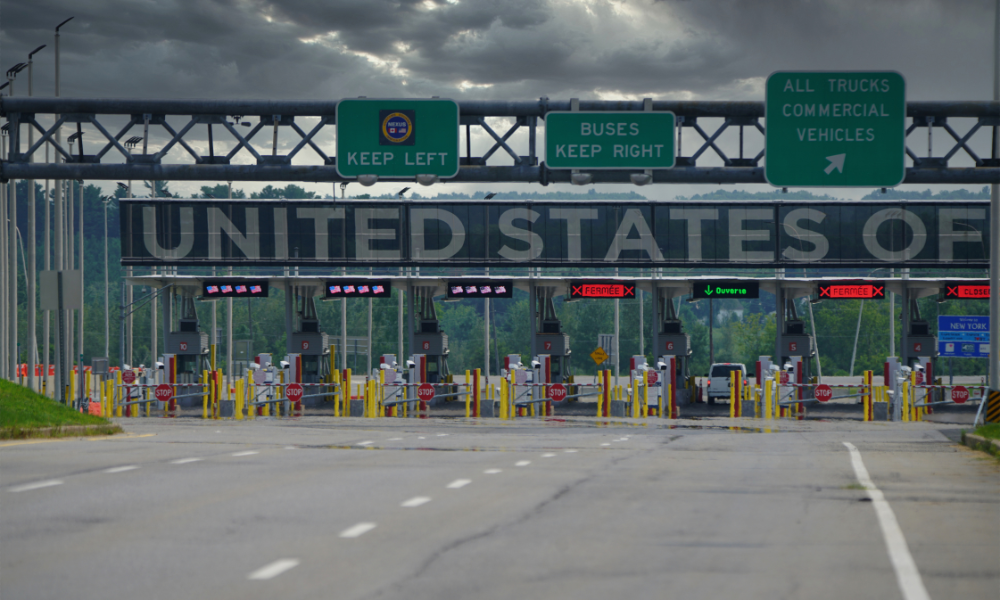The scrapped levy would have cost US tech giants US$2.7 billion in retroactive payments starting Monday

Canada scrapped its digital services tax (DST) just hours before the first payments were due, after US President Donald Trump suspended trade negotiations and threatened retaliatory tariffs — a shift that immediately reopened talks but sparked criticism over sovereignty and policy control.
According to BNN Bloomberg, Prime Minister Mark Carney confirmed the tax reversal was “part of a bigger negotiation” and said it made little sense to collect a tax only to potentially refund it later: “It doesn’t make sense to collect tax from people and then remit them.”
The White House, however, declared the move a concession, with press secretary Karoline Leavitt saying Carney “caved to President Trump and the United States of America.”
The tax, enacted last year and retroactive to 2022, would have imposed a three percent levy on large tech firms such as Amazon, Google, Meta, Uber, and Airbnb.
As reported by The New York Times, the first payments were due on Monday and could have cost US companies an estimated US$2.7bn.
According to BNN Bloomberg, Finance Minister François-Philippe Champagne had reaffirmed the DST’s implementation just days earlier.
Critics across Canada quickly condemned the move.
Bloc Québécois Leader Yves-François Blanchet said Carney had compromised on several files, including defence and tariffs, “but has nothing to show for it.”
Interim NDP Leader Don Davies described the decision as “pure caving in to Trump and his billionaire friends,” adding in a social media post that abandoning taxation of tech giants amounted to “unacceptable appeasement.”
Conservative Leader Pierre Poilievre also weighed in, saying Carney cancelled the tax “at the 11th hour” and should insist that the US drop softwood lumber tariffs in return.
According to The Globe and Mail, Carney did not respond to questions about whether Canada received anything in exchange for dropping the tax.
He confirmed that trade talks resumed Monday morning and remain targeted to conclude by July 21 — the deadline first set at the G7 summit in Kananaskis, Alberta.
A weekend of calls between Finance Minister Champagne, Trade Minister Dominic LeBlanc, and US counterparts culminated in Carney calling Trump Sunday night to confirm the decision.
The late-stage shift led to confusion among businesses.
EY Canada’s Tariq Nasir told BNN Bloomberg that some companies had already instructed payments, only to find them rejected by the Canada Revenue Agency.
Firms are now trying to determine how to recover funds and reconcile them in quarterly filings.
According to CTV News, economist and former Finance Ministry advisor Julian Karaguesian viewed the last-minute withdrawal as a “tactical manoeuvre” that made the concession appear reluctant rather than immediate.
However, he warned that Canada’s sovereignty was at stake. He said, “What we’re seeing from the White House is they’re telling their allies that ‘you have no sovereignty over your domestic policy.’”
Jim Balsillie, chair of the Council of Canadian Innovators, echoed this concern, saying Trump is “exerting power and leverage over Canada because he can.” He argued the core issue was not DST policy but Canada’s broader capacity to defend sovereign economic decisions.
As reported by The Globe and Mail, Michael Geist, Canada research chair in Internet and E-commerce Law, said Canada “gave up what was a non-trivial card” and used it just to return to pre-crisis conditions.
In contrast, William Pellerin of McMillan LLP said it was likely that the DST would be sacrificed as part of Canada–US trade talks, noting that even the former Biden administration opposed the tax.
Benjamin Bergen, head of the Council of Canadian Innovators, said in a media statement cited by BNN Bloomberg that while his group had supported the tax, rescinding it “was the right one” if it reopens formal negotiations.
Business groups responded positively.
David Pierce of the Canadian Chamber of Commerce said the tax would have raised consumer costs and hurt the economy “at a critical time.”
The American Chamber of Commerce in Canada also described the decision as welcome.
Champagne reiterated on Radio-Canada that the DST had always been a “transitional measure” pending a global tax agreement.
Lachlan Wolfers of KPMG Canada told The Globe and Mail the current corporate tax model is outdated and not built for digital economies.
“Companies no longer need a physical presence to derive value,” he said.
Carney also previously indicated that Canada may adjust counter-tariffs on steel and aluminium to “consistent” levels as part of the trade talks.
The US currently imposes tariffs of 25 percent on Canadian autos and 50 percent on steel and aluminium, as reported by The New York Times.
Canada remains in a precarious position as trade discussions continue.
As Karaguesian told CTV News, reducing reliance on a single trade partner and investing in infrastructure could help shift Canada toward a “truly internal economy” with greater control over its own policy direction.



